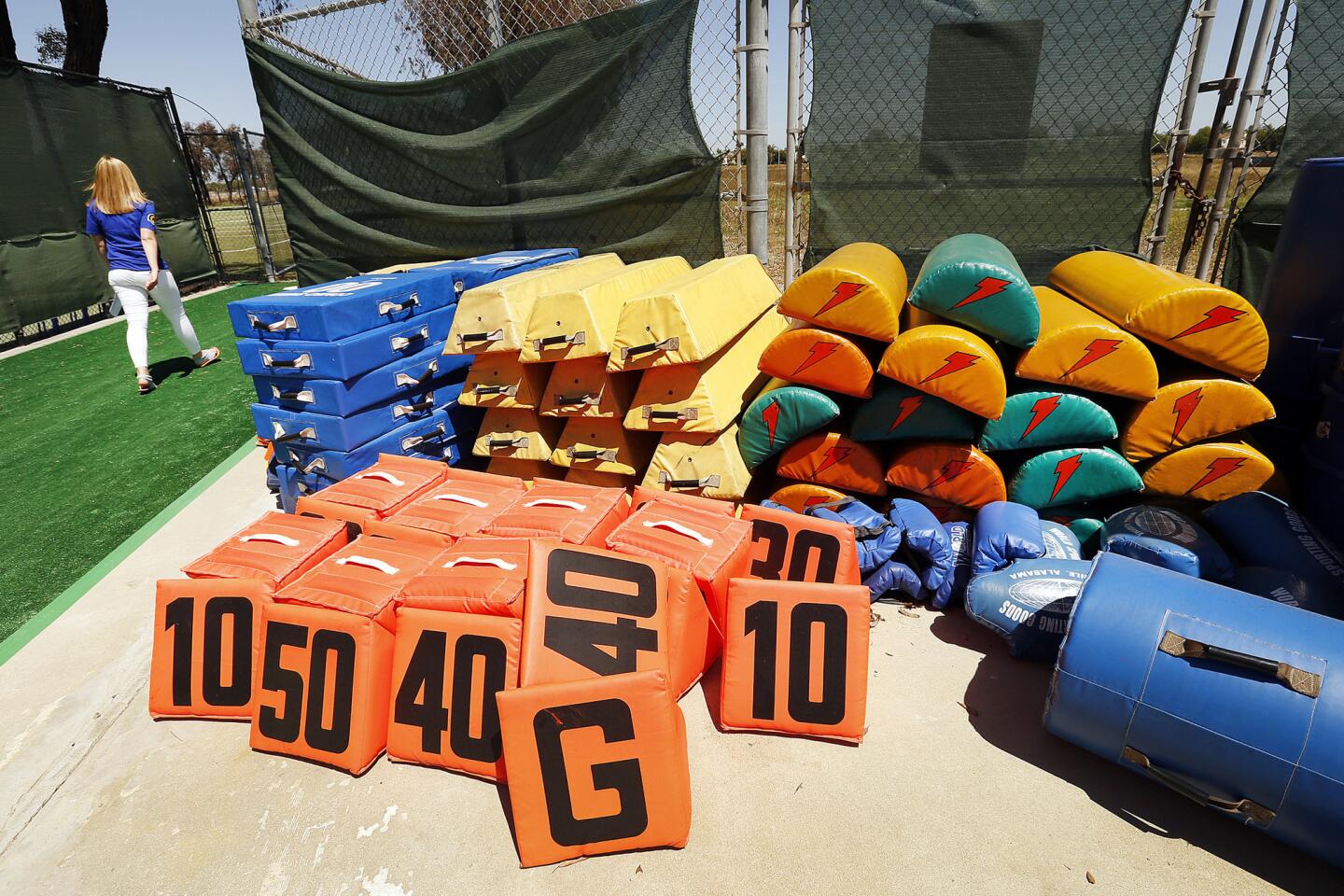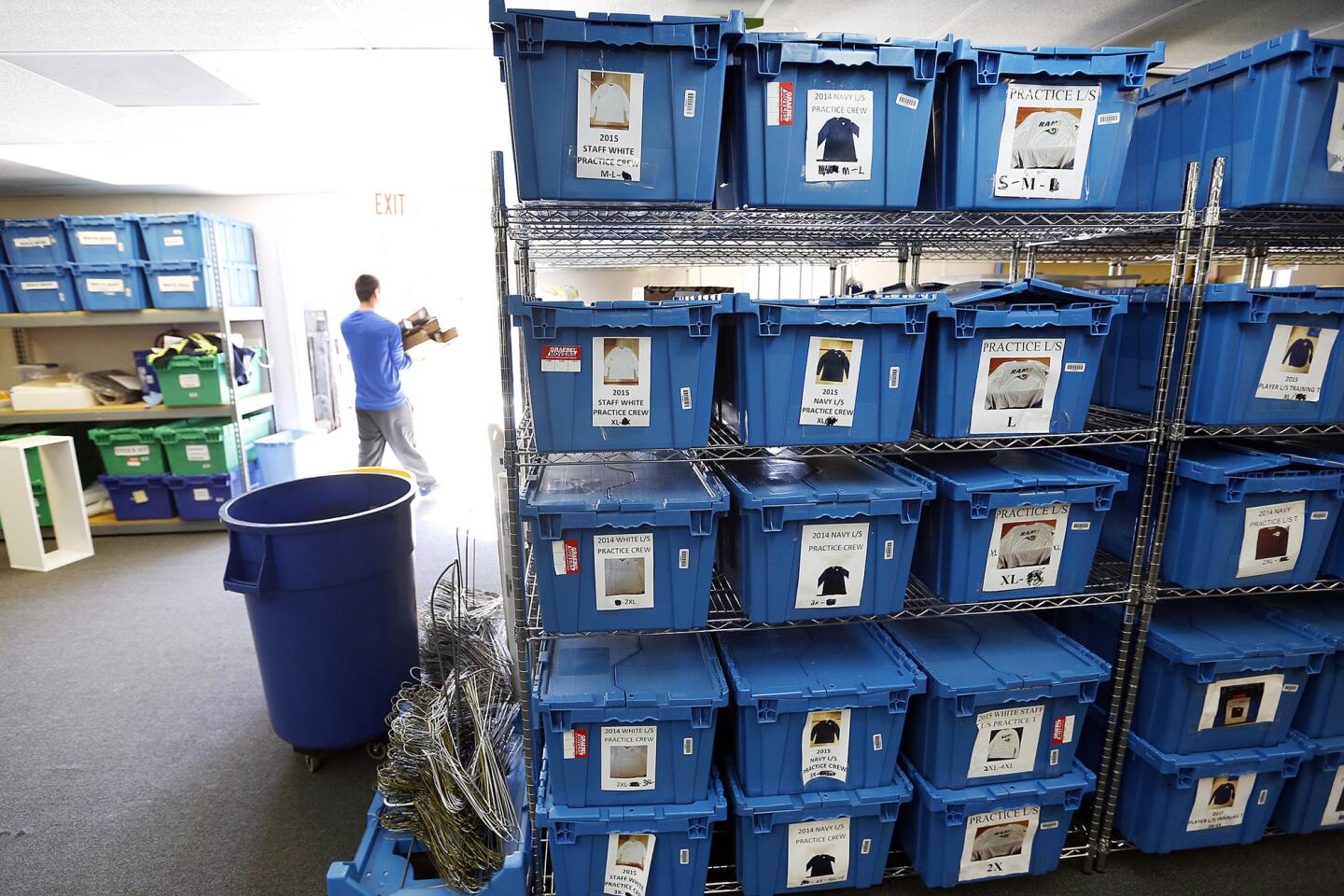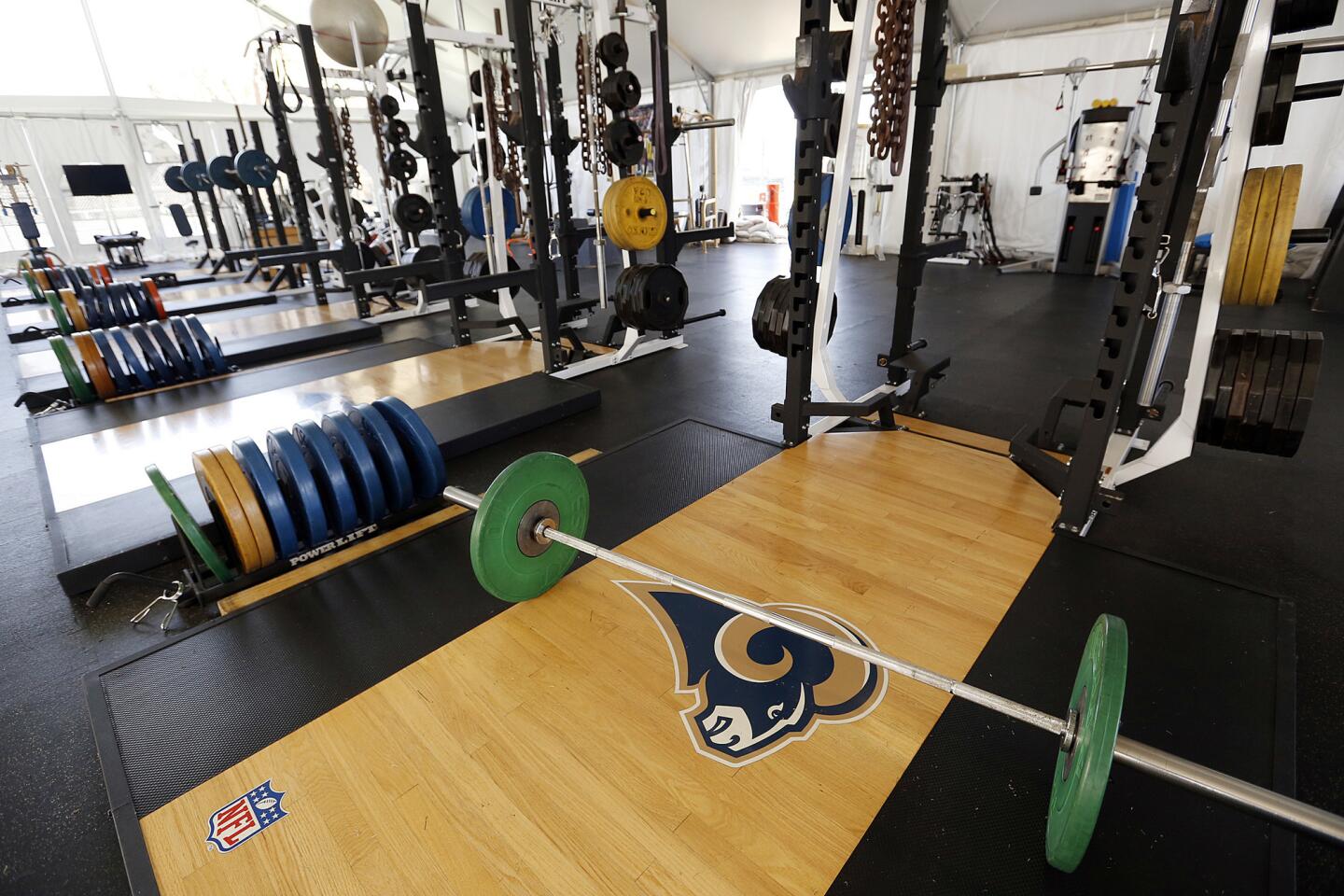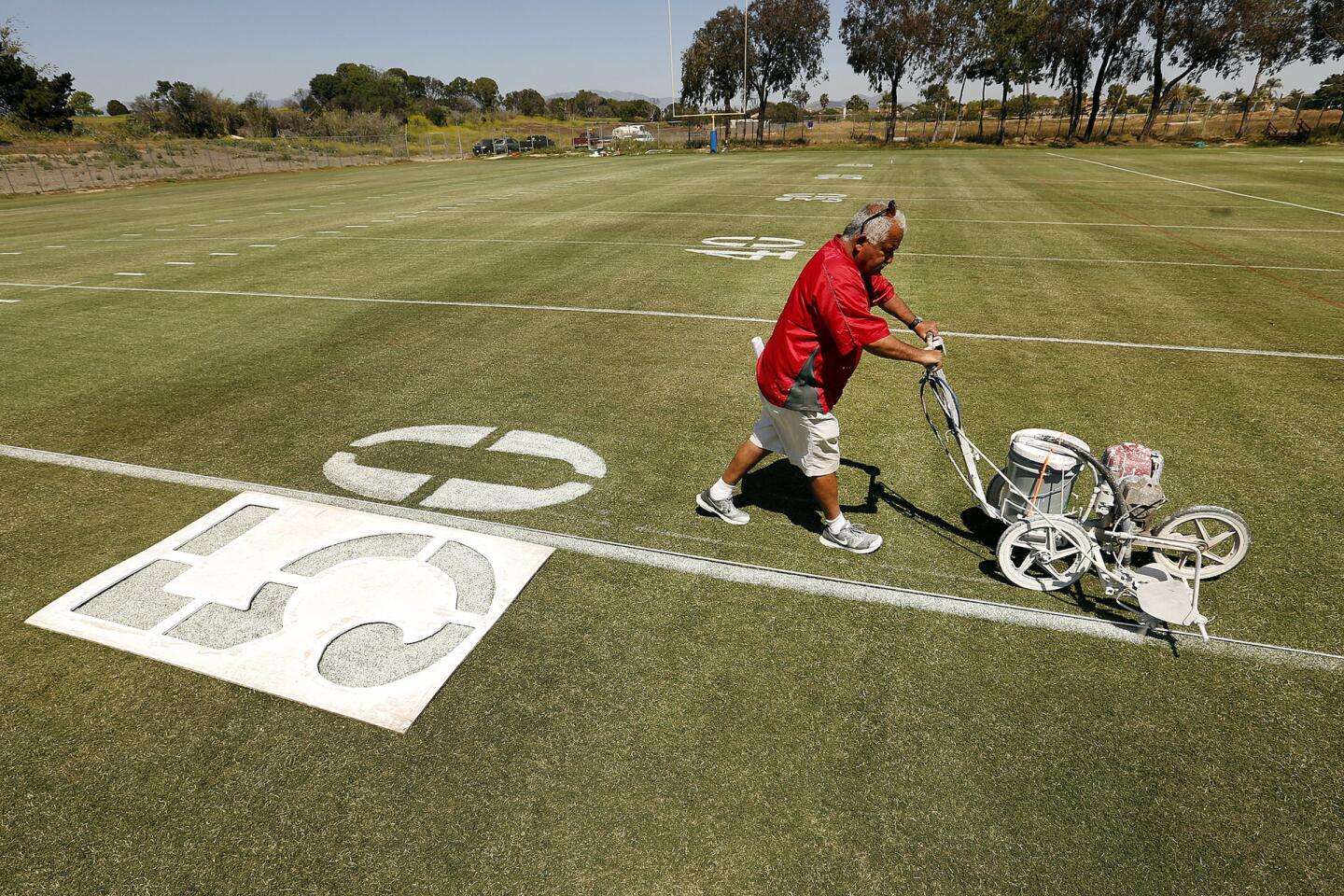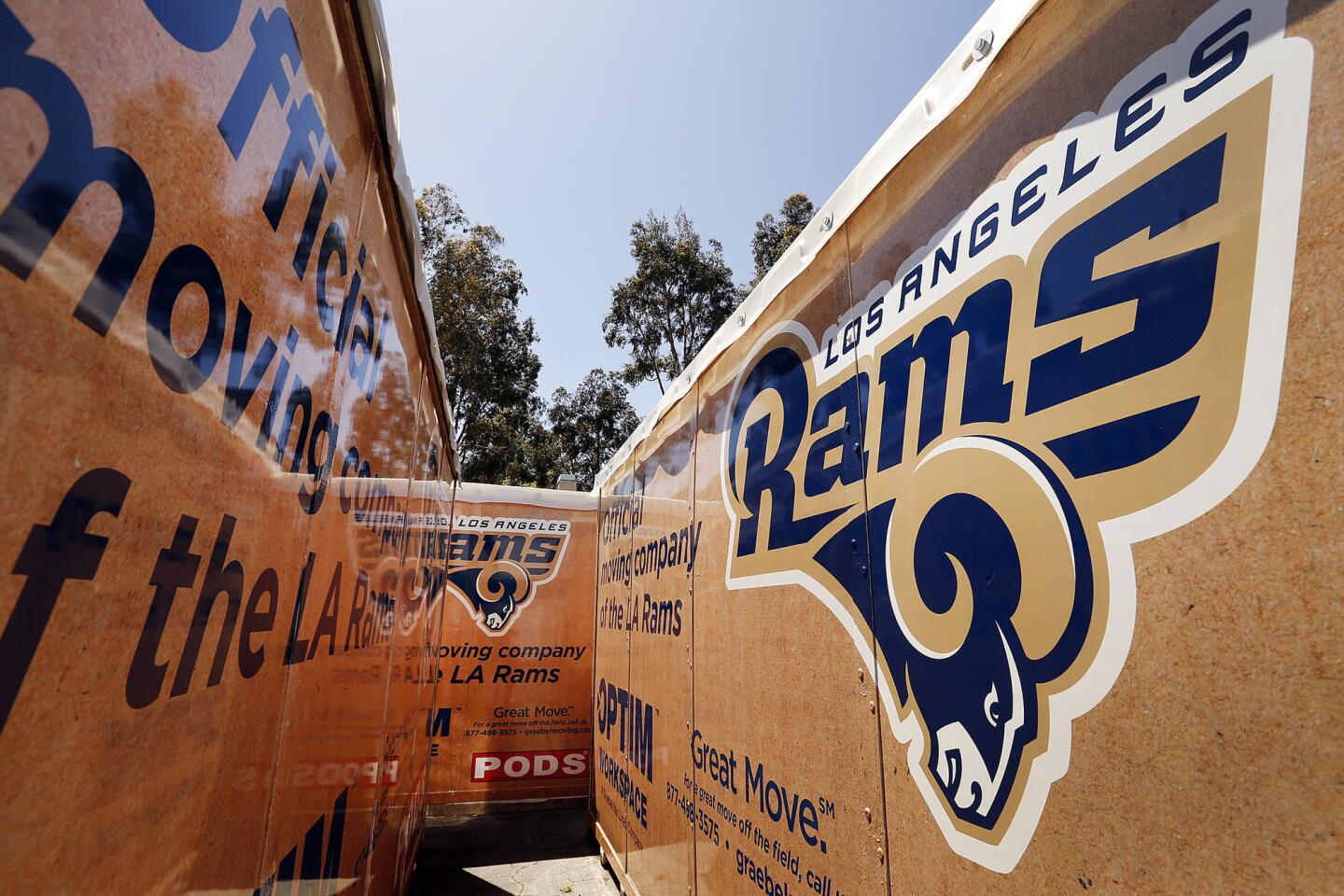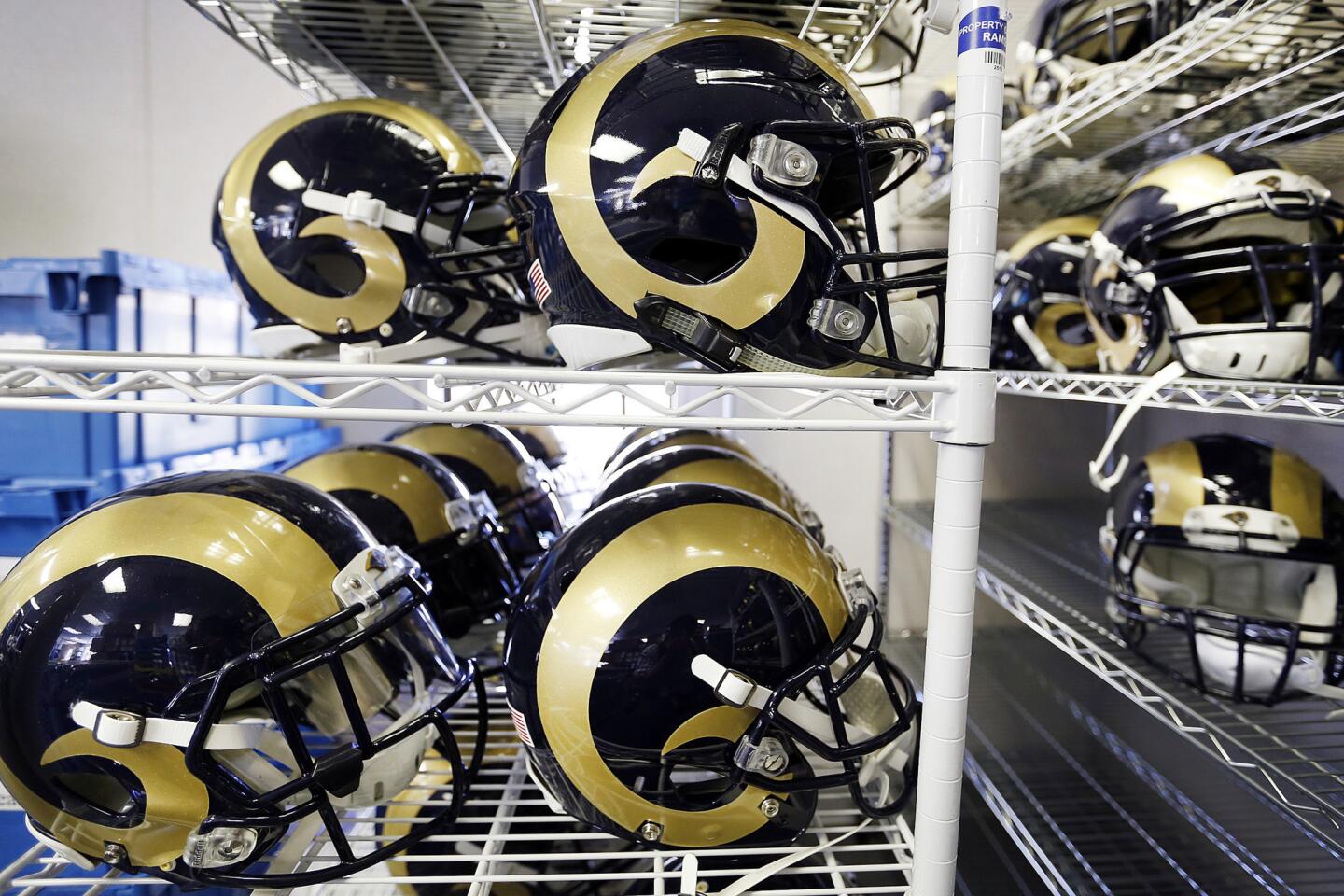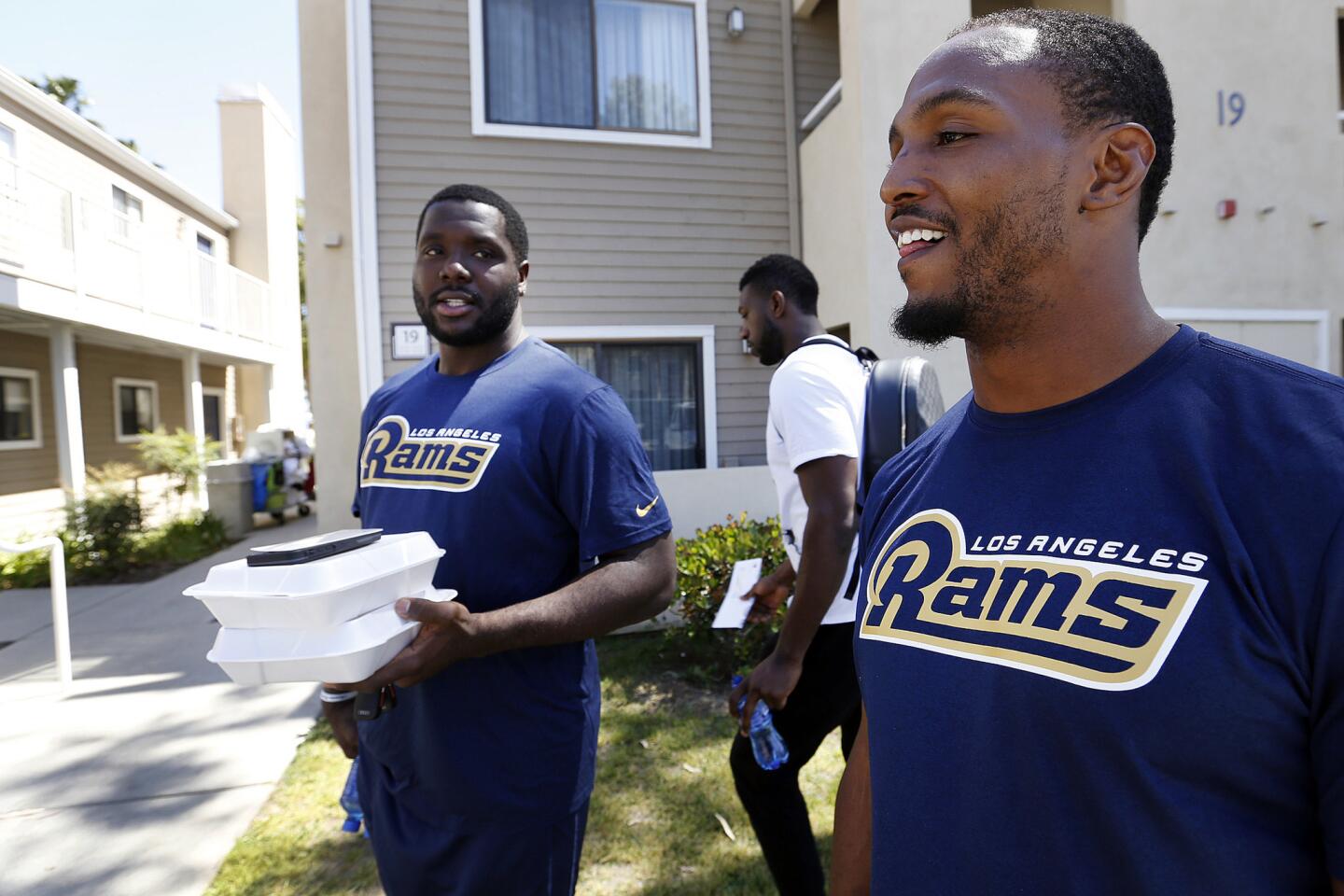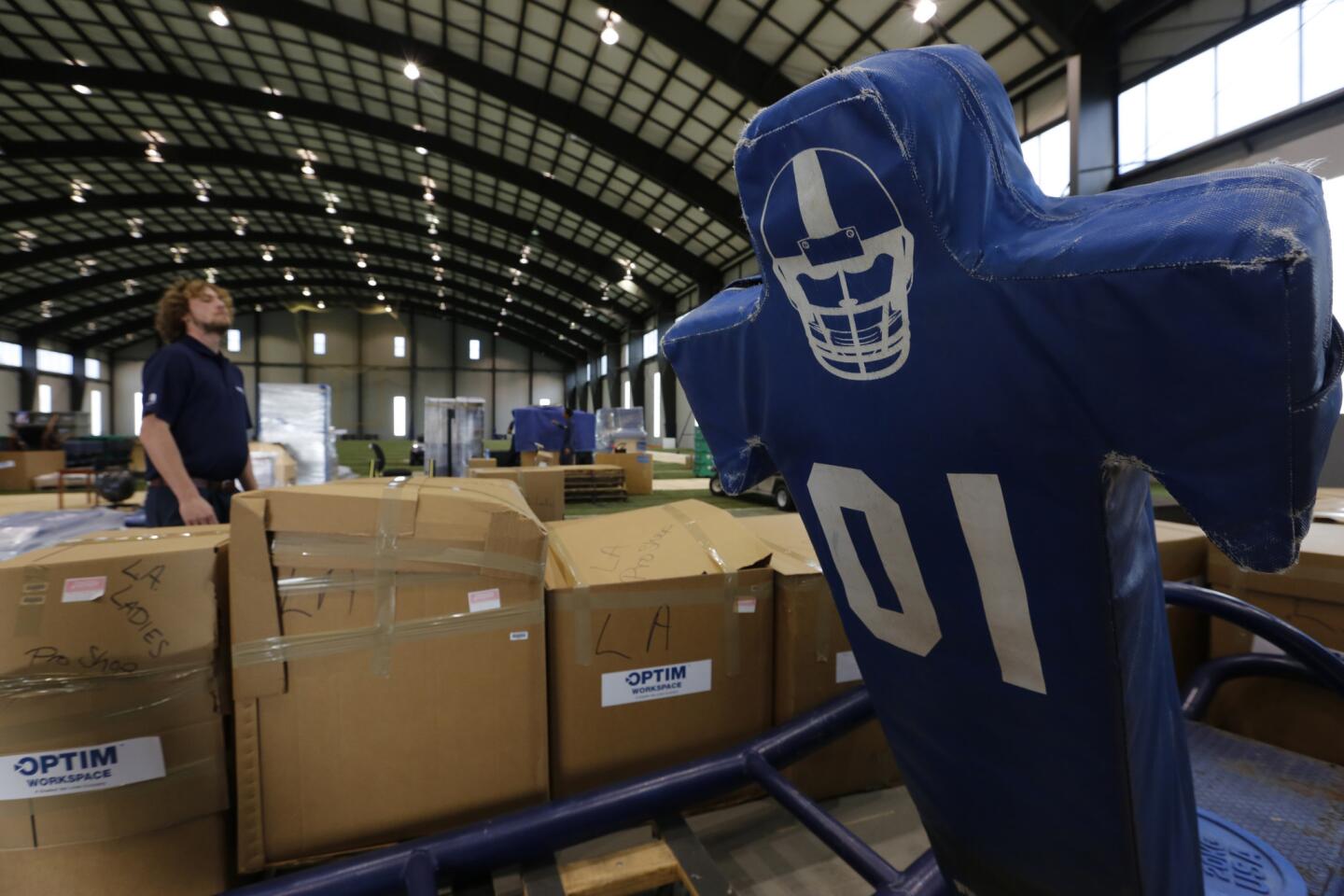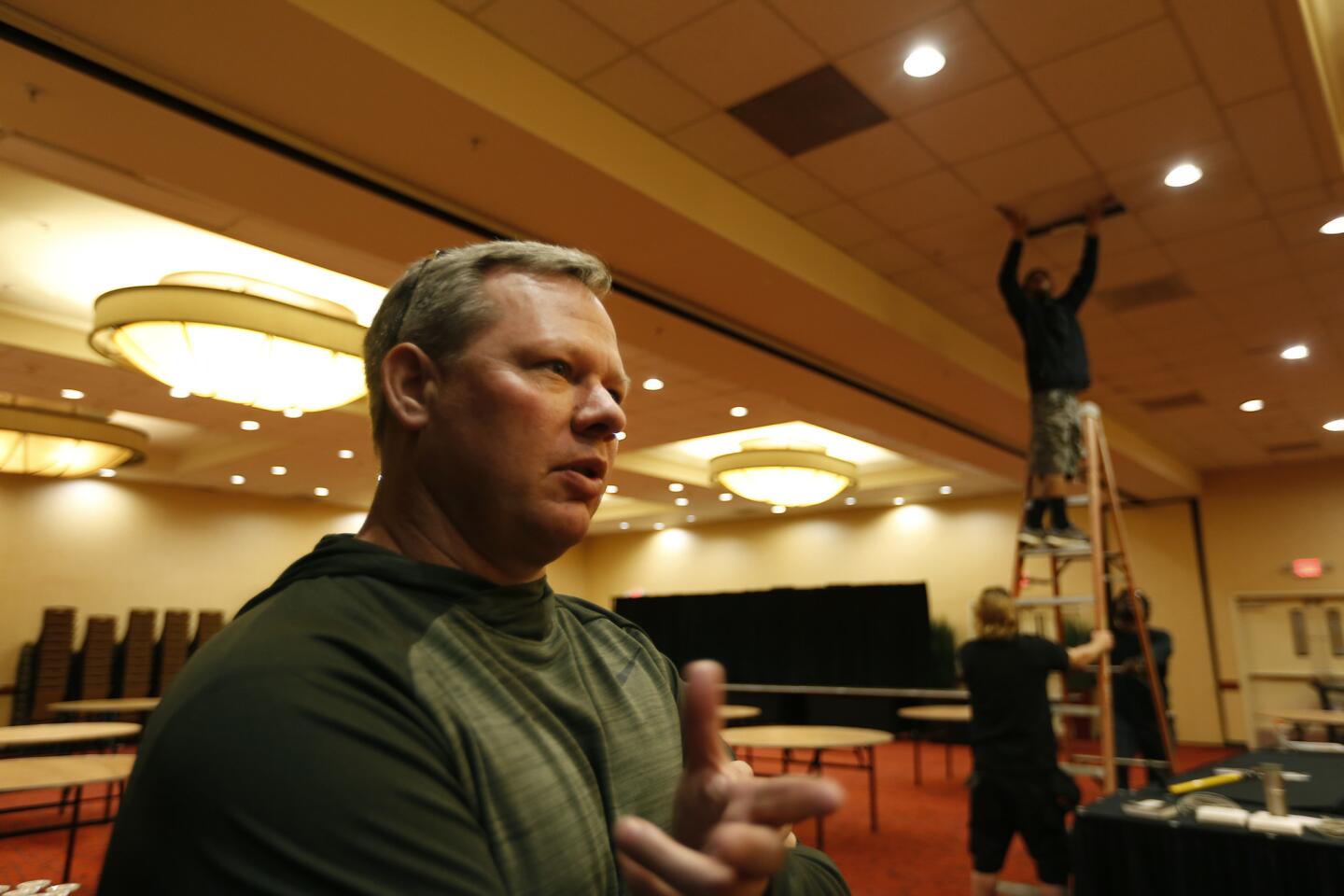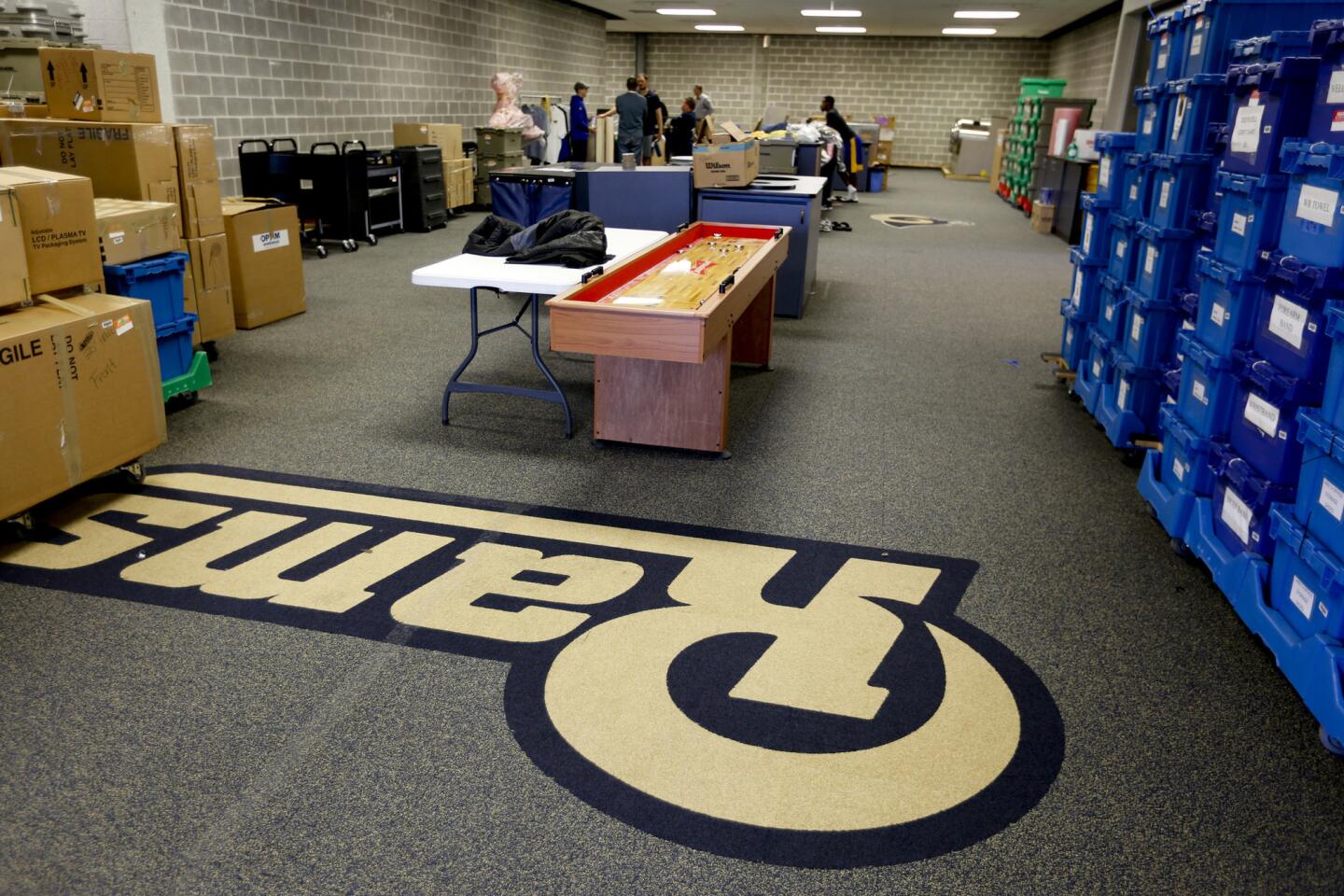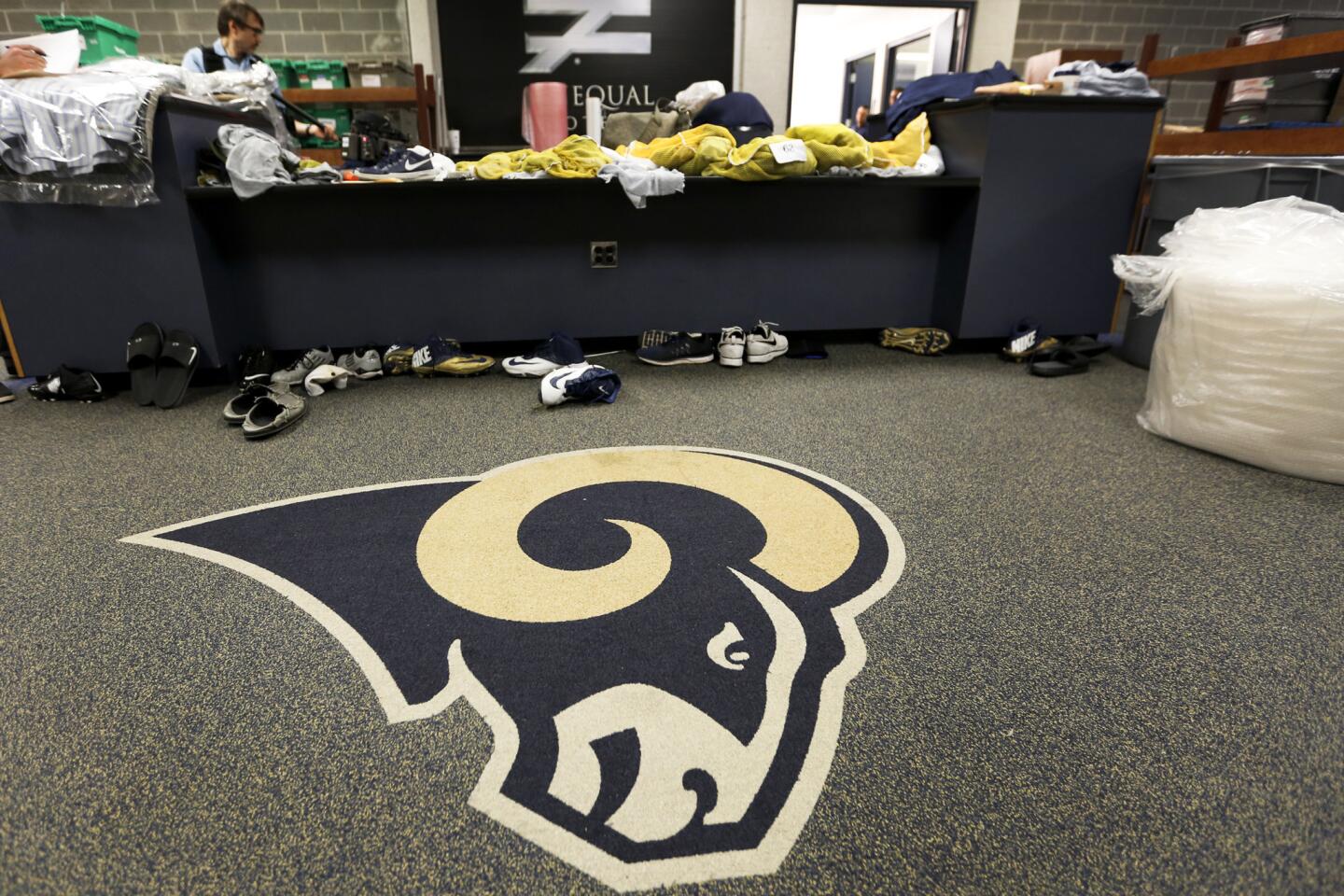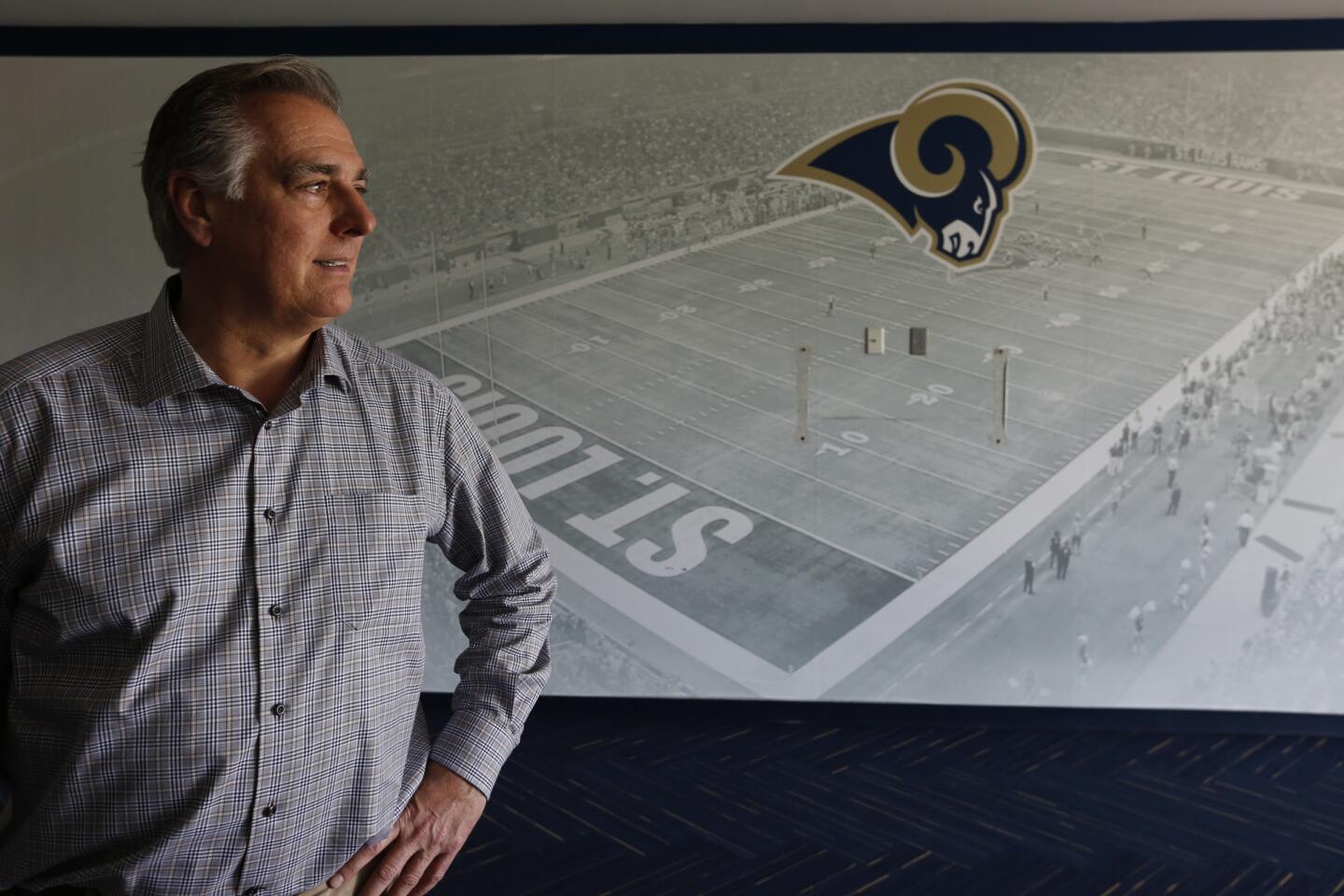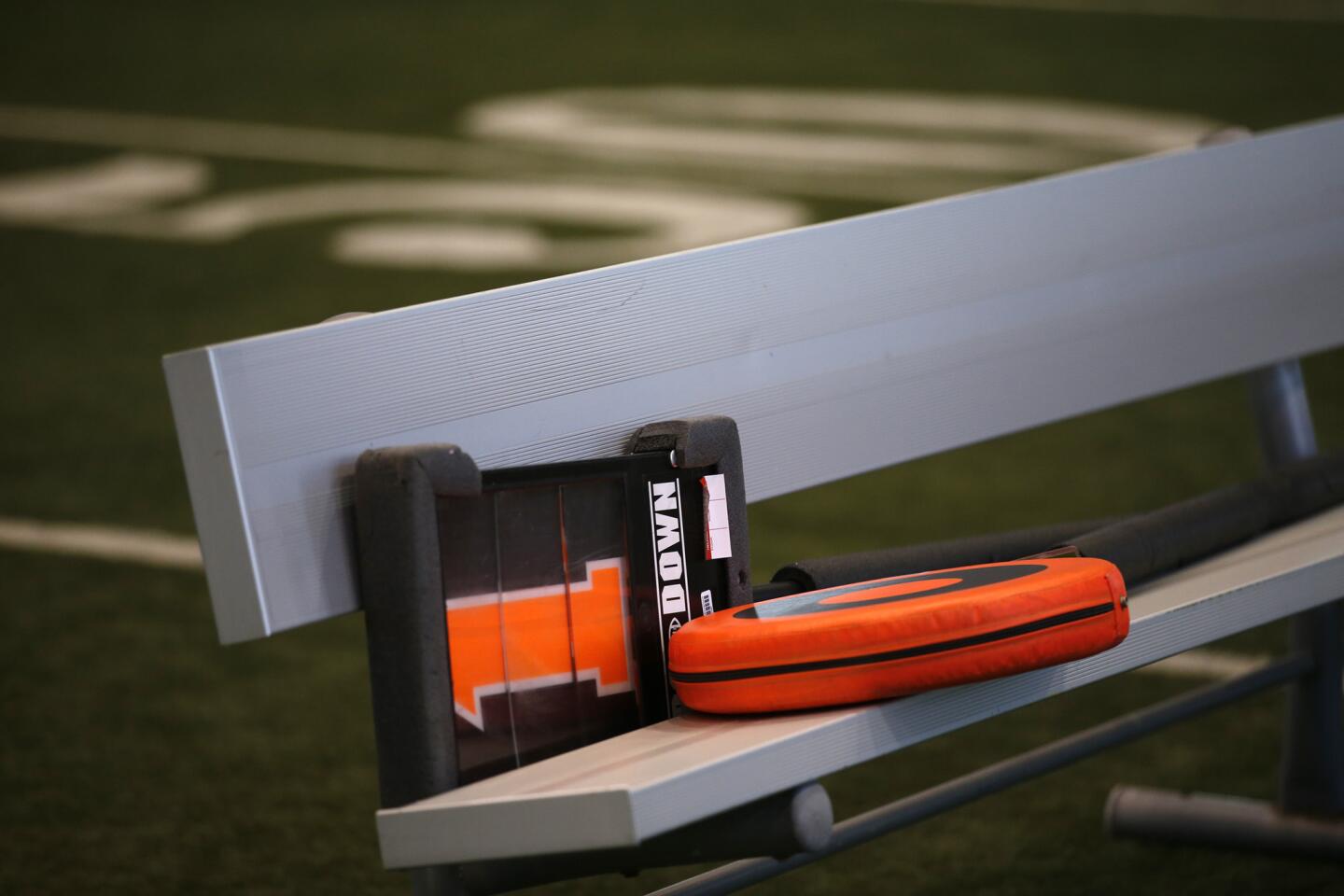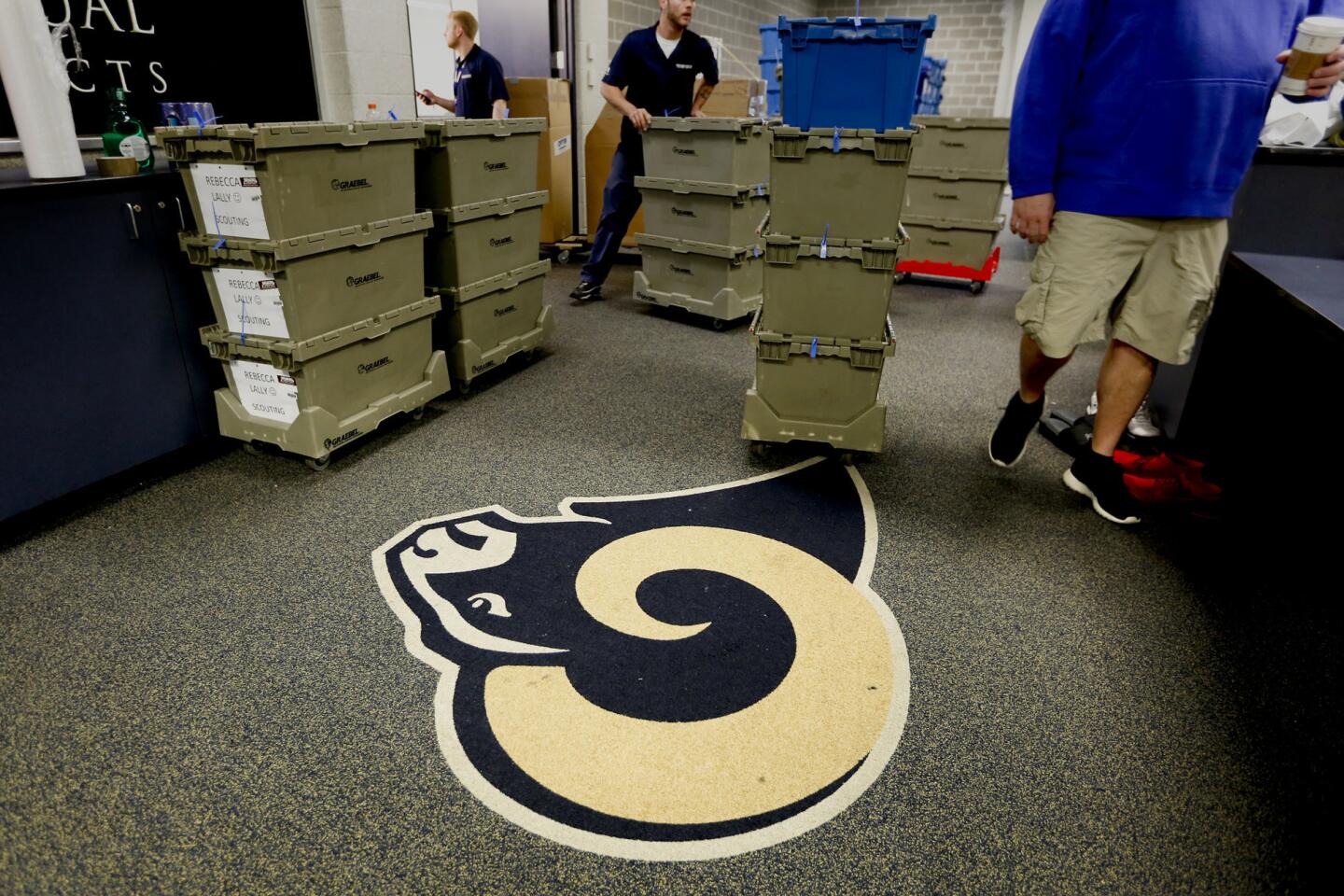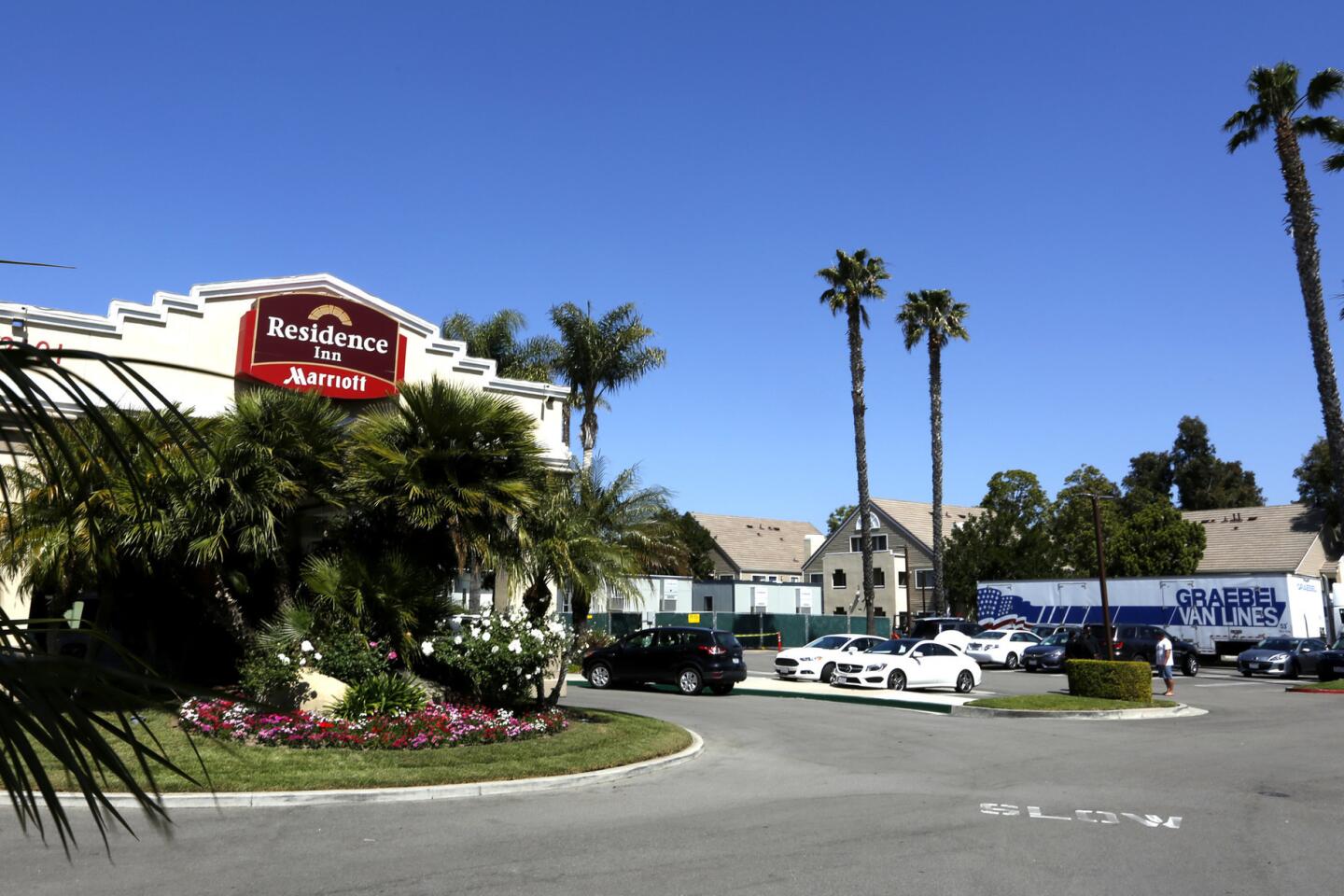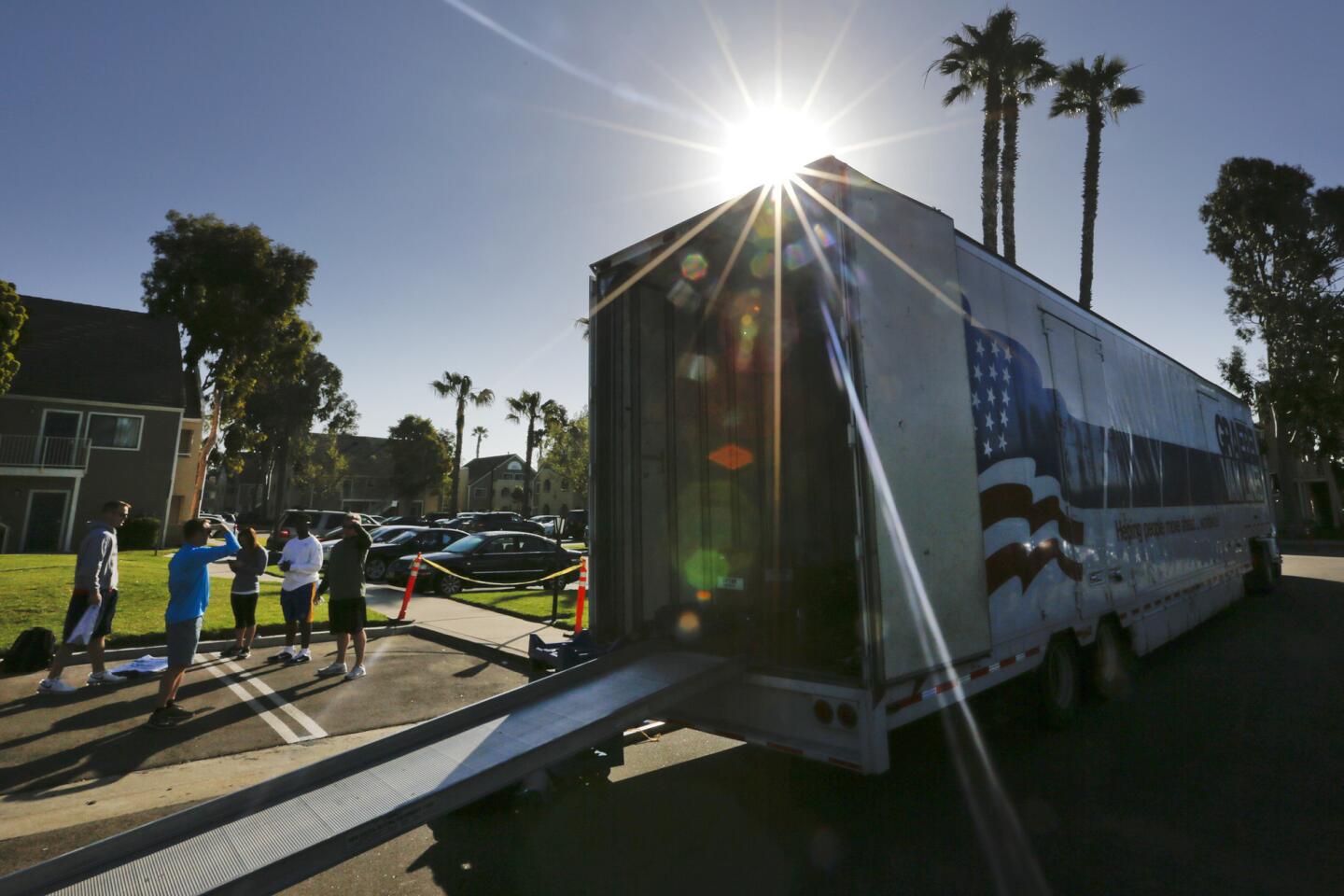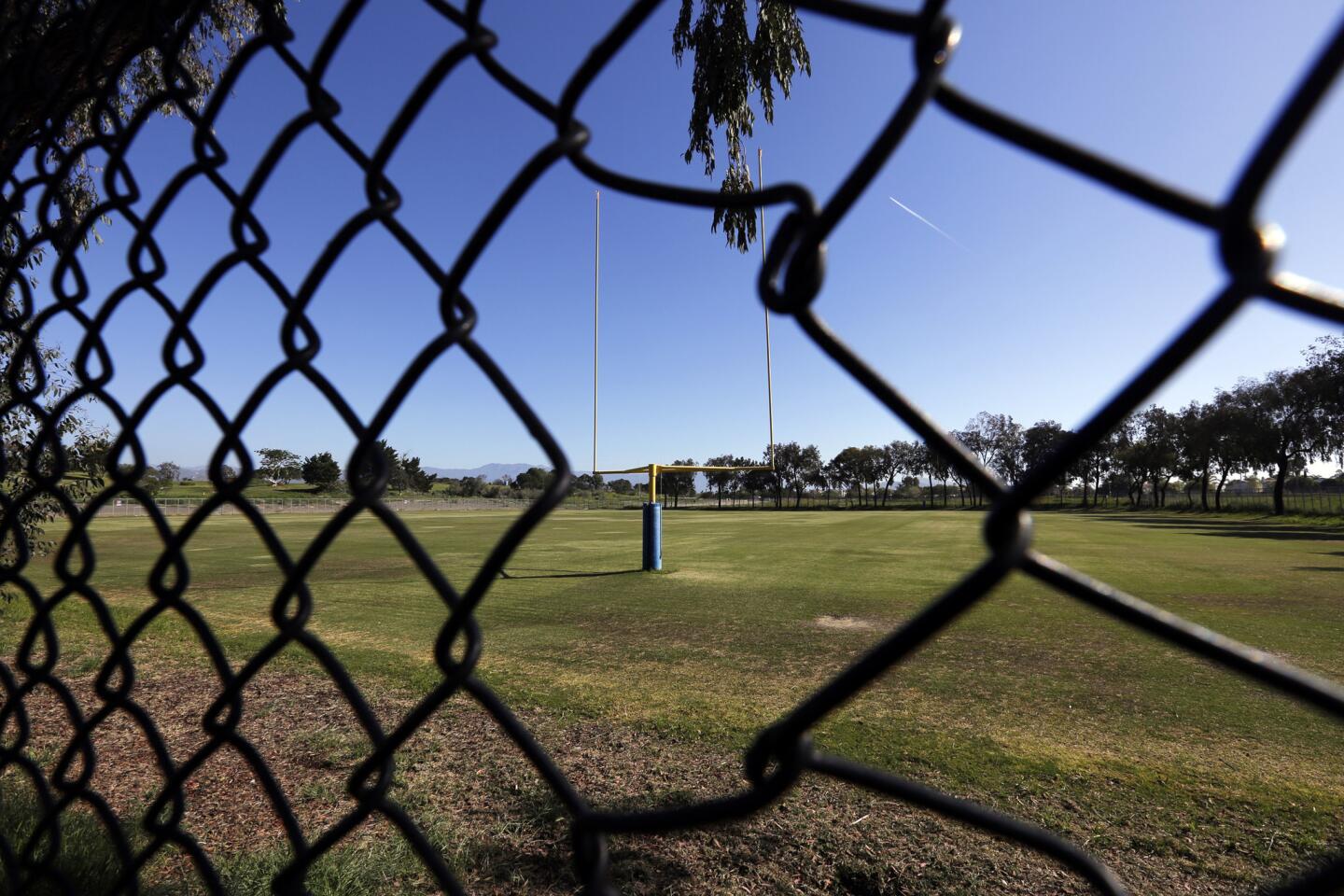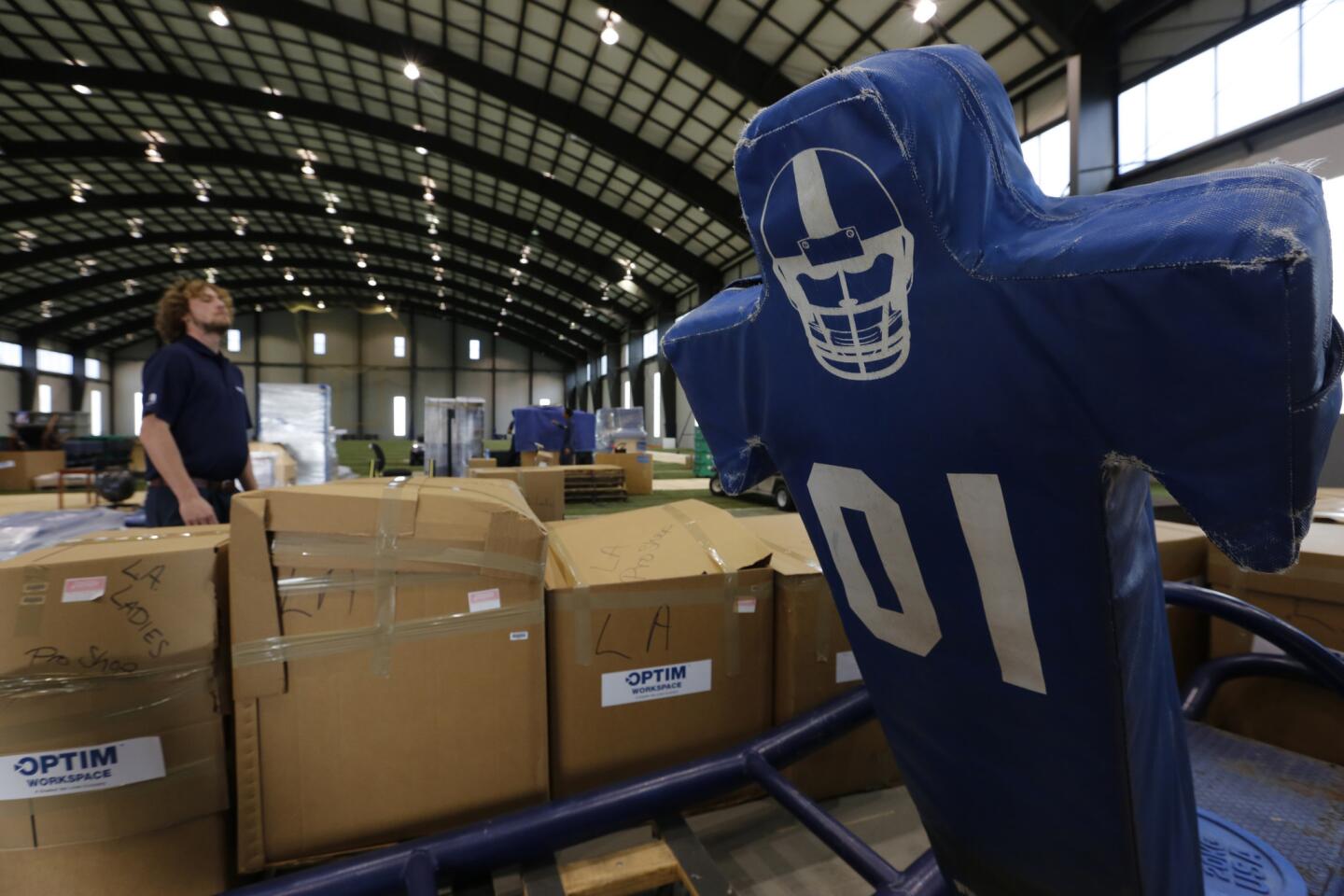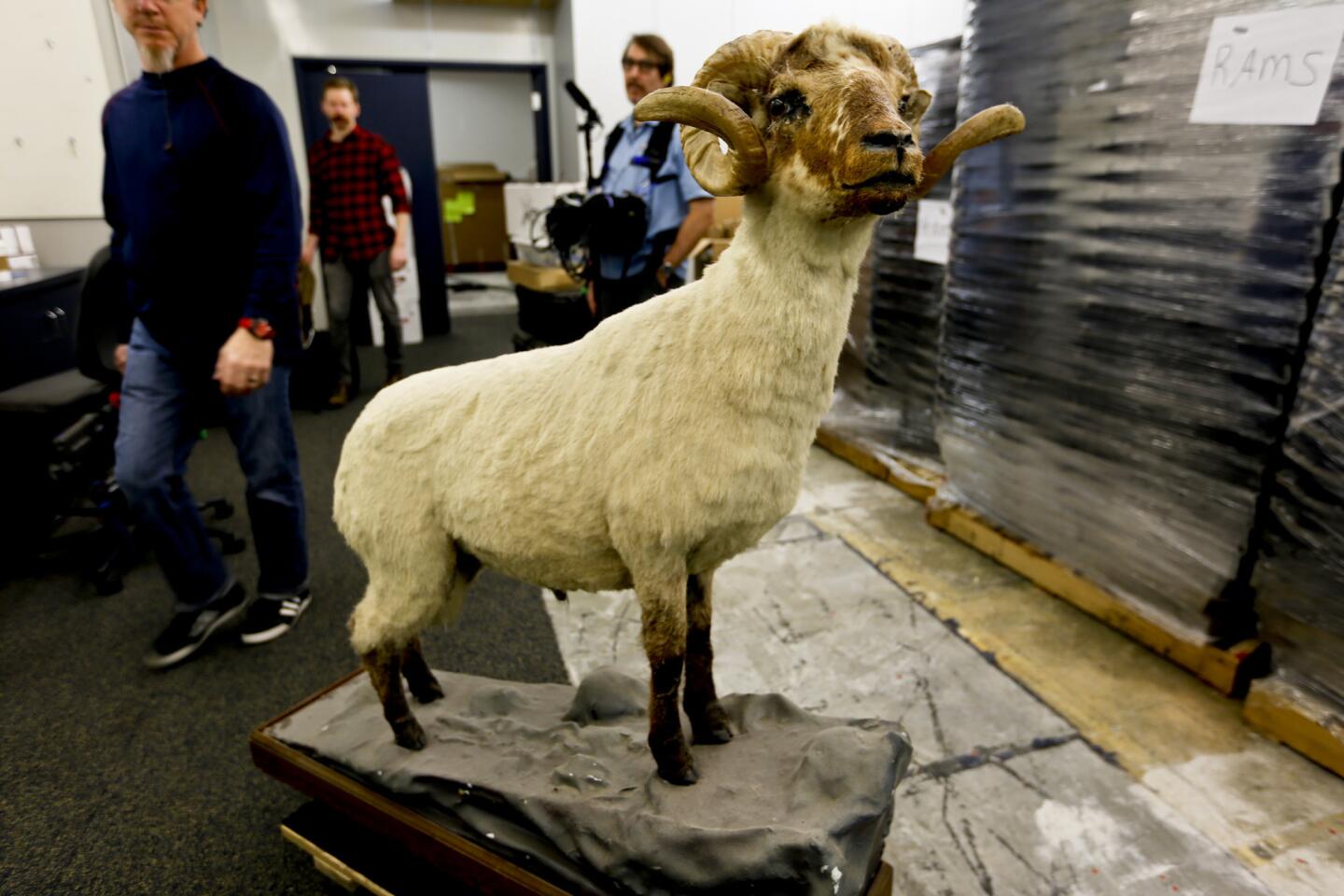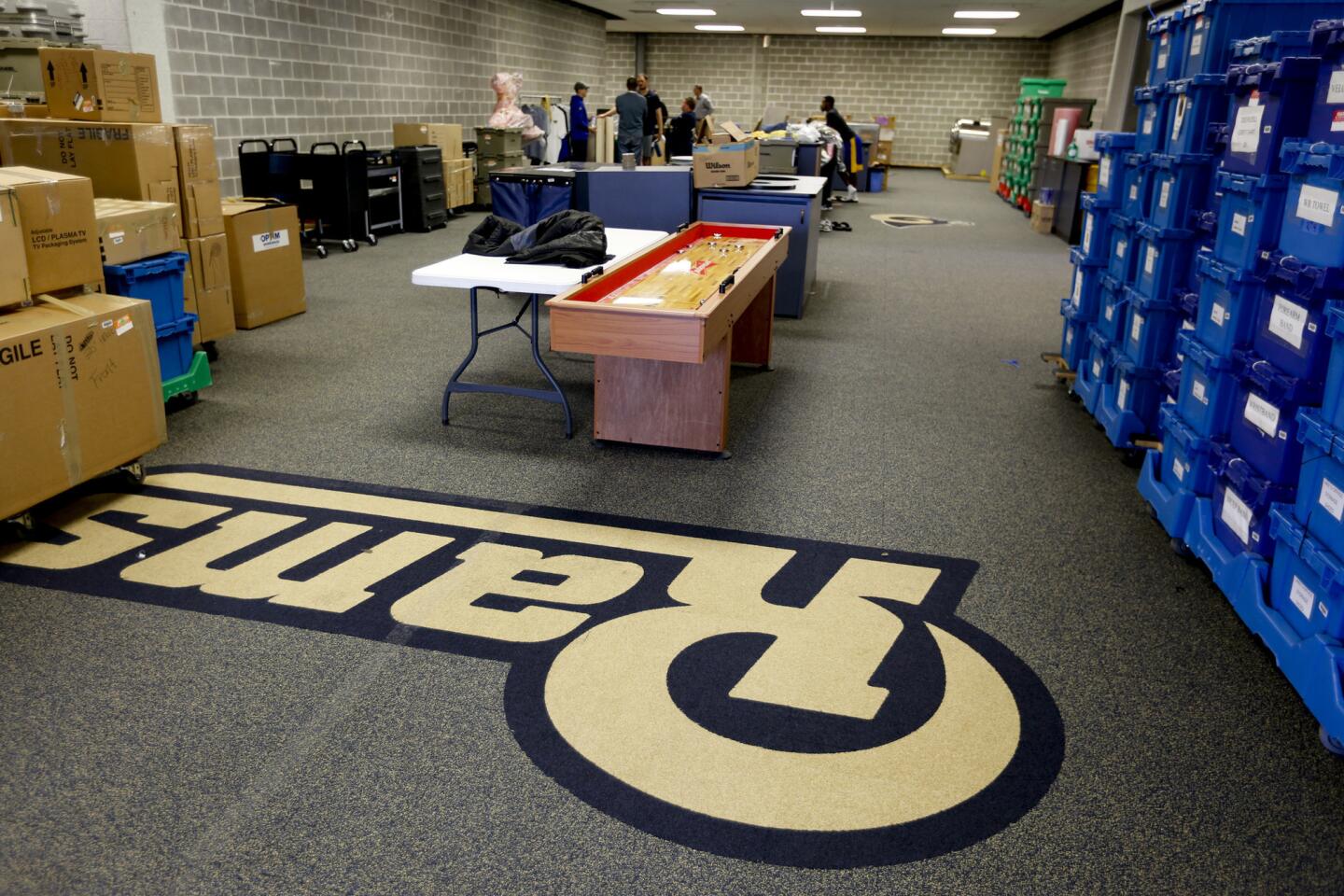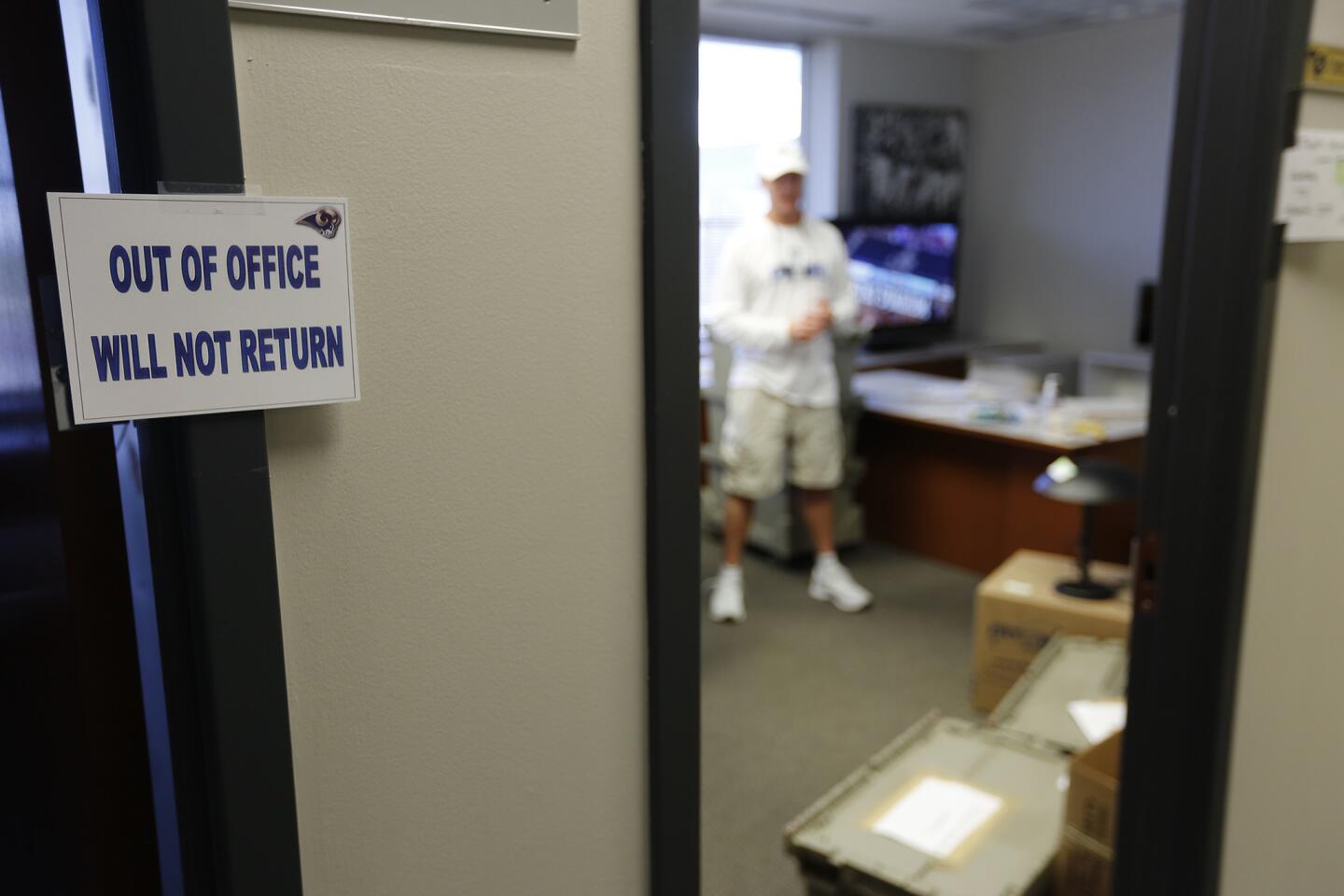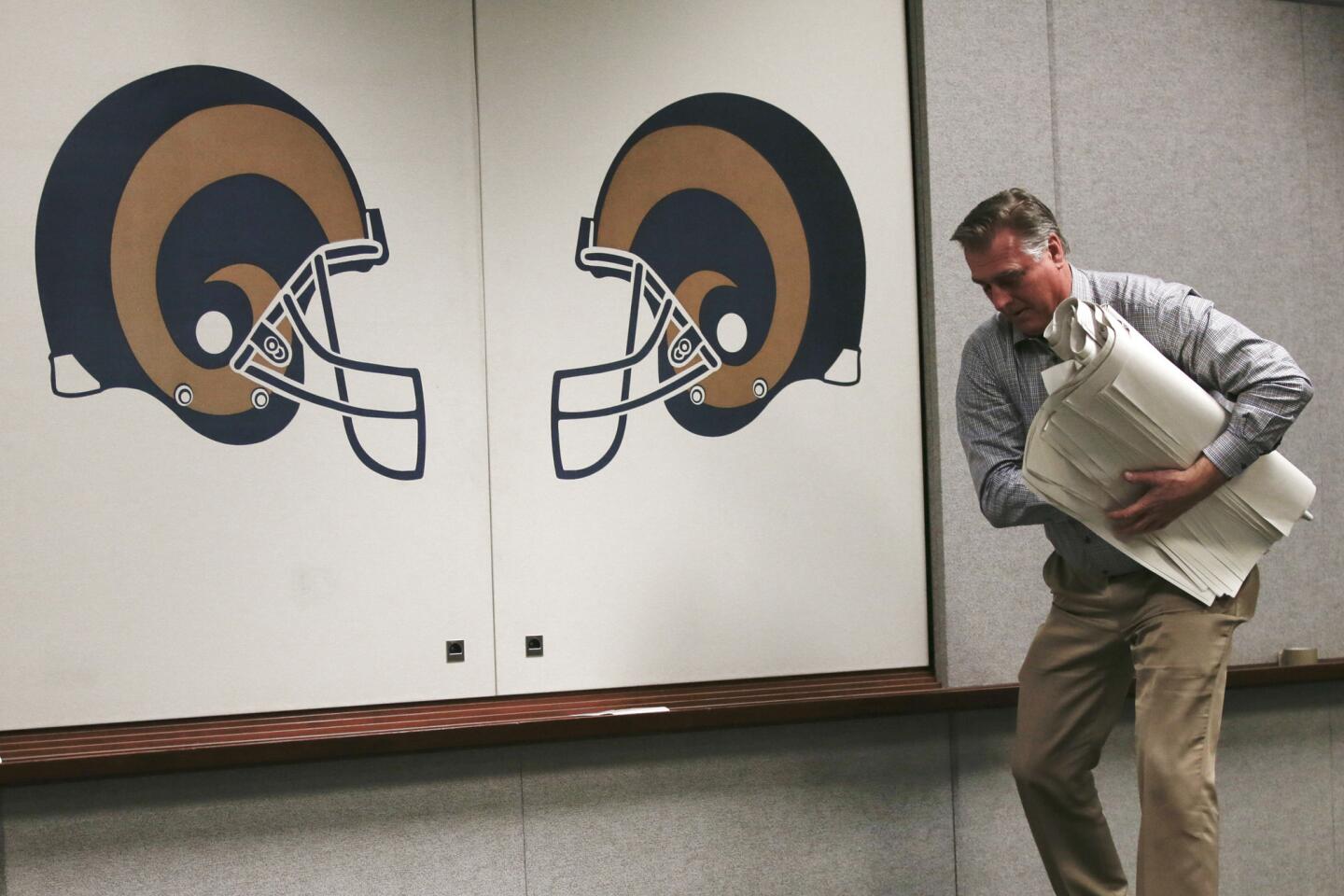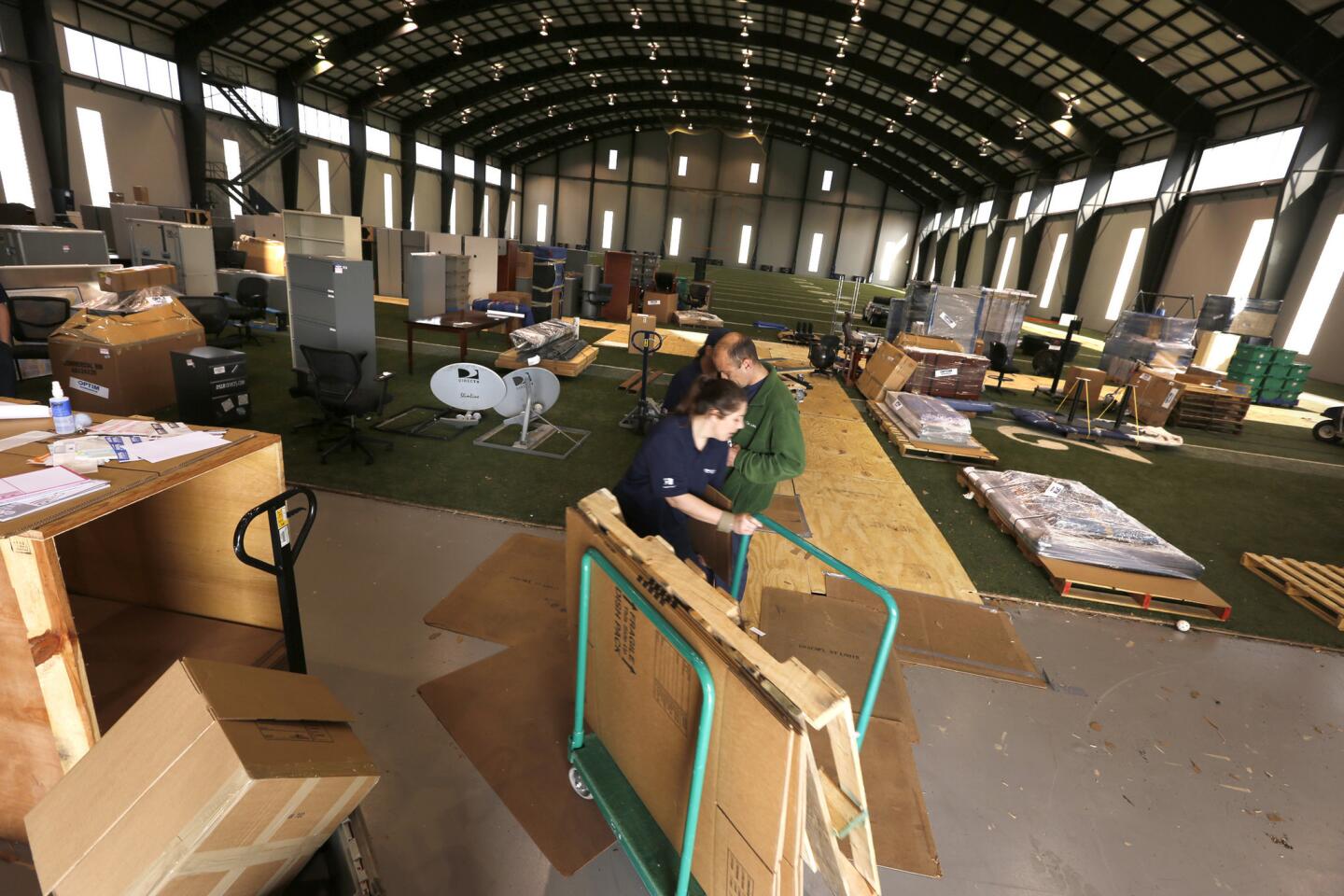Moving the Rams from St. Louis to Southern California was no easy task

The Los Angeles Rams made the move from the Edward Jones Dome in St. Louis to Oxnard, Calif., where they will base their off-season program and draft meeting before playing the 2016 season at the Los Angeles Memorial Coliseum.
- Share via
Reporting from ST. LOUIS — Most of the trucks had already rolled out of Rams Park, headed west toward the coast.
A steady procession of 30 tractor-trailers had carted away nearly 1 million pounds of equipment, all the stuff that comes with running an NFL franchise.
There were crates of shoulder pads and footballs, whirlpool baths from the training room and a Super Bowl trophy from the display case in the lobby.
A forklift had scurried across the practice field in back of the team’s former headquarters, just north of downtown St. Louis, scooping up blocking sleds and tackling dummies.
“Principles of physics still apply,” said John Bernier, an executive with Optim moving company. “But we’re hauling some weird stuff.”
It took more than six weeks to relocate the Rams to their new home in Southern California, where they are settling in for off-season training and draft preparations.
The massive task of shifting an NFL franchise 2,000 miles began in mid-January when NFL owners voted to let the Rams come back to Southern California this season. There was no time to waste.
Team staff got to work snapping an estimated 25,000 to 35,000 photographs of every item at Rams Park for a web-based inventory. The cavernous indoor field was transformed into a warehouse.
Soon, boxes and piles of gear stretched from the end zone to midfield.
Desks and file cabinets accounted for much of the clutter, along with dozens of large video monitors for watching game film.
It might have looked like any business move except for the stationary bikes and IV stands, the cartons of talcum powder and dry-erase boards ripped down from the walls, some still bearing marks from diagramed plays.
Pro football is pretty much a year-round enterprise, so Coach Jeff Fisher had talked to his team and coaching staff about working through the chaos.
“He told us it might be tough,” offensive lineman Rodger Saffold said.
The veteran player continued showing up to the weight room until the very end, pausing his routine when movers lumbered through with stacks of boxes.
“Those guys have been around so much,” Saffold said. “They’ve been in the locker room and seen me getting dressed, so I guess we’re friends by now.”
Bernier stopped by on a weekday morning to look at rows of dumbbells along the wall. The bigger ones, as heavy as 180 pounds, would require custom-made wooden crates.
“What kind of person lifts those?” the executive said. “That’s dangerous.”
In the scouting department upstairs, Taylor Morton stayed at his computer, studying film of college prospects even as workers carried away everything else in his office.
The player personnel director was facing a deadline crunch, trying to finish pre-draft reports for the coaches.
“I’m down to the bare bones,” he said. “But I can still watch video.”
Not everything at Rams Park made the move.
A T-shirt with the logo “St. Louis Rams” lay on a pile of clothes by the back door; team executives decided to leave behind anything with the name of their former city.
The flooring in owner Stan Kroenke’s office also was crossed off the list; its tiles were fabricated from the same leather used to make footballs.
“I guess it costs too much to tear it out and haul it 2,000 miles,” said Lee Martin, the team’s facilities manager.
As the St. Louis portion of the work neared completion, moving company supervisor Clint Carbona checked on the color-coded labels affixed to every item, including a surfboard with Fisher’s name on it.
This job required extra attention if only because the Rams are not scheduled to move into their planned Inglewood stadium until 2019. In the meantime, they will lead a nomadic existence.
For the next three months, players will train in Oxnard at a hotel where the Dallas Cowboys hold their summer camp. The Rams subsequently will move to Irvine for training camp before settling into a longer-term facility at Cal Lutheran University in Thousand Oaks.
Executive offices have been leased in Agoura Hills. Everything could end up moving again in three years.
“It gets complicated,” Carbona said. “We have to make sure the right trucks go to the right place.”
At the rear of the building, the equipment staff watched over the final stages of the move.
Of all the Rams employees, they might have been least affected. Numerous times each season they transport helmets, pads and uniforms for away games. Bernier called them “road warriors.”
But they seemed concerned about one particular item.
“We have to take Cliff,” said Jim Lake, the team’s equipment manager.
Cliff is a taxidermied ram that has adorned the equipment room the last few years. It got its name because it is mounted on what looks like a rocky ledge.
Lake and his staff watched as movers prepared the stuffed animal to be loaded onto one of the last trucks, covering it with layers of bubble wrap and tape.
“Be careful,” Lake said. “Take care of him.”
Twitter: @LATimesWharton
More to Read
Go beyond the scoreboard
Get the latest on L.A.'s teams in the daily Sports Report newsletter.
You may occasionally receive promotional content from the Los Angeles Times.

